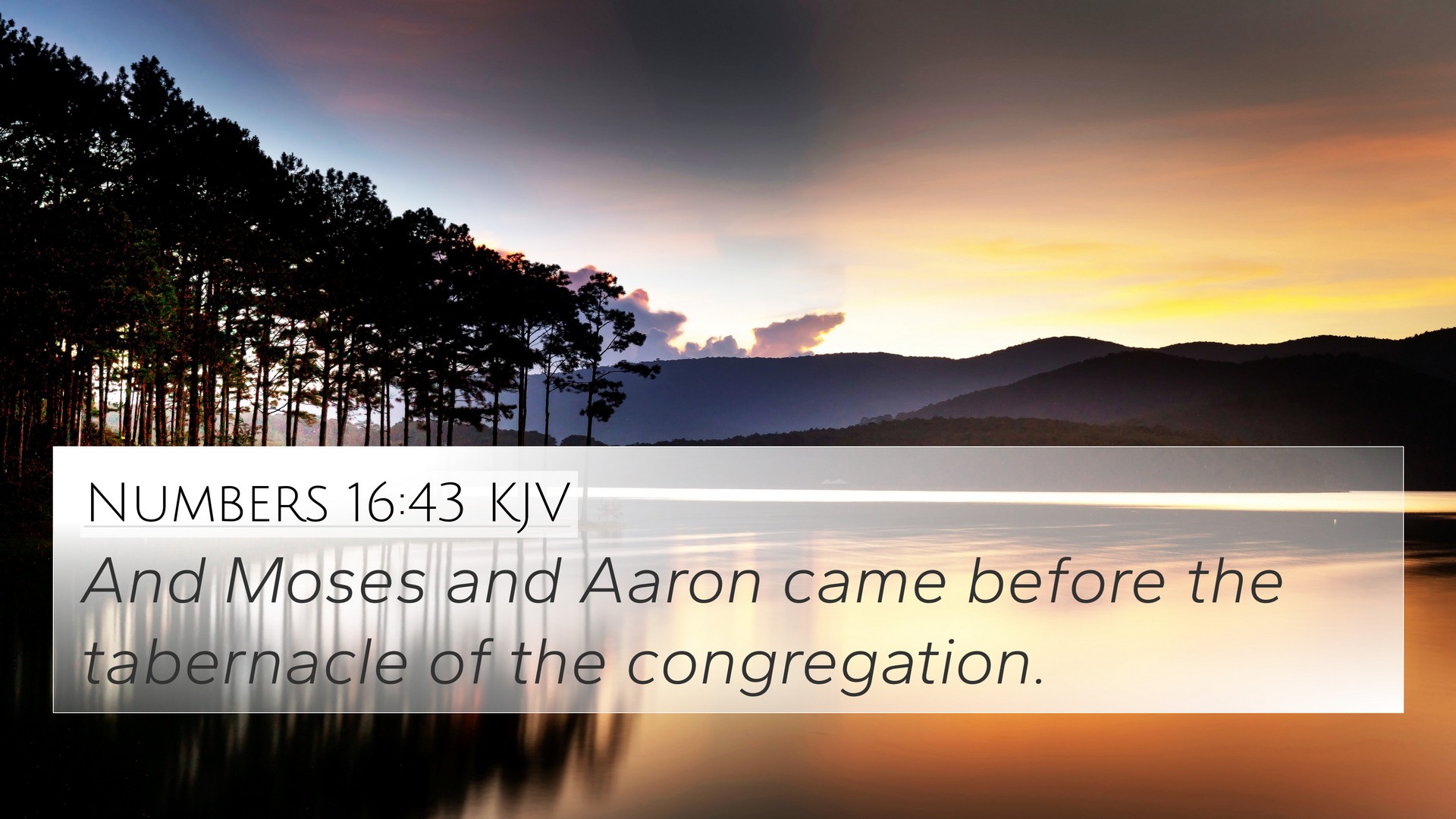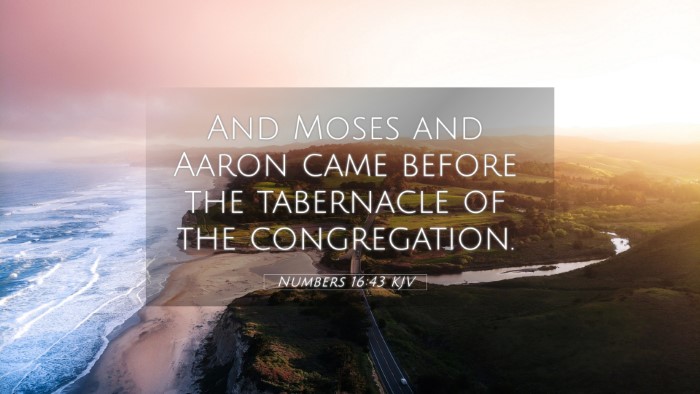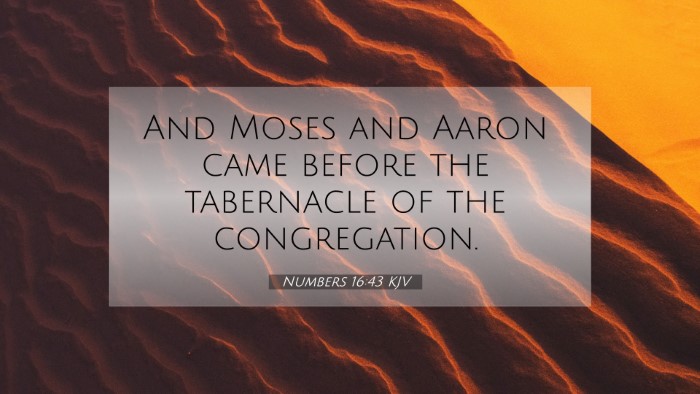Understanding Numbers 16:43
Numbers 16:43 is an important verse in the context of the rebellion of Korah and the ensuing judgment from God. This verse falls within a narrative that emphasizes the seriousness of opposing God’s appointed leaders and the pivotal role of the priesthood.
Verse Context and Meaning
In this chapter, the Israelites are confronted with the rebellion led by Korah, Dathan, and Abiram against Moses and Aaron. Verse 43, which states, "And Moses and Aaron came before the tabernacle of the congregation", highlights their immediate response to God's command. The significance of their action is critical, as it illustrates leadership, intercession, and the gravity of the situation.
Insights from Public Domain Commentaries
-
Matthew Henry:
Henry emphasizes the intercessory role of Moses and Aaron. He notes that their approach to the tabernacle shows their commitment to seek God's mercy amidst the rebellion. The tabernacle represents God's presence, and by going there, they acknowledge their reliance on divine intervention and guidance.
-
Albert Barnes:
Barnes provides a detailed analysis of the symbolism present in the tabernacle and how it serves as a point of contact between God and His people. He mentions that this meeting indicates the seriousness with which God perceives the rebellion and highlights the need for mediation through the priesthood.
-
Adam Clarke:
Clarke focuses on the implications of the leaders’ actions as they approach God. He reflects on the danger that the Israelites faced as a result of their rebellion, noting that this moment represents a critical chance for reconciliation and appeals to divine authority.
Thematic Connections and Cross-References
Numbers 16:43 can be viewed through various thematic connections in the Bible, particularly in leadership, rebellion against God, and divine intercession. Here are some relevant cross-references:
- Exodus 32:11-14: Moses intercedes for Israel after the sin of the golden calf.
- Leviticus 10:1-3: The judgment of Nadab and Abihu demonstrates the seriousness of God’s holiness.
- Hebrews 7:23-28: Discusses the necessity of a high priest in the New Testament context.
- 1 Peter 2:9: Believers are called a royal priesthood, drawing parallels with the priestly duties of Aaron.
- Romans 12:1: Encouragement to present oneself as living sacrifices, emphasizing access to God.
- Psalms 106:23: References how Moses stood in the breach to turn away God’s wrath.
- Hebrews 5:1-4: Discusses the role of priests and their function in offering sacrifices.
Lessons and Applications
This verse encourages believers to recognize the significance of approaching God with humility, especially as representatives of a community. It underscores the importance of prayer and intercession. The biblical narrative throughout emphasizes how obedience to God and His appointed leaders aligns with His divine order.
Practical Reflection
As one meditates on Numbers 16:43, consider how to incorporate similar principles into personal leadership and community behavior. How do we respond to authority? How can we act as intercessors in our communities?
Conclusion
Numbers 16:43 serves as a pivotal verse that encapsulates the themes of rebellion, divine judgment, and the necessity of intercession. By linking this verse with various passages throughout Scripture, one can garner a deeper understanding of God's expectations from His people, the grace available through His intercessors, and the importance of maintaining a righteous standing before Him.


